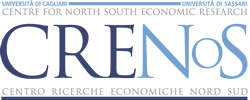Education race, supply of skills and the wage skill premium
| Title | Education race, supply of skills and the wage skill premium |
| Publication Type | Working Paper |
| Year of Publication | 2012 |
| Authors | Deidda, LG, Paolini, D |
| Number | 2012_06 |
| Keywords | signaling, supply of skills, wage-skill premium |
| Abstract | We model a competitive labor market populated by workers who are heterogeneous in wealth and skills, in which education plays a signaling role. We show that whenever the accumulation of factors of production such has technology results in a wider wage premium for skills over time – as it might happen under skill biased technological progress – the investment in education needed to sustain a talent separating equilibrium, in which skilled workers are able to perfectly signal their skills, also increases. Hence, increases in the wage skill premium induce an education race as skilled individuals try and invest more to signal themselves. However, if due to imperfect capital markets, the borrowing capacity of poor individuals is lower than that of rich ones, such race will eventually come to an end as poor and skilled individuals are no longer able to finance the amount of investment needed to signal their talent, and end up pooled together with unskilled and rich at a lower level of education. Hence, the behavior of the long run supply of skills with respect to an increase in the wage-skill premium is sluggish. Such mechanism supports a supply side explanation –which complements the skill bias technological change hypothesis – for the long run trends of (i) The wage-skill differentials and (ii) The relative supply of postgraduates and college graduates in the US labor market. |
| Citation Key | 3566 |
| Attachment | Size |
|---|---|
| 798.81 KB |
